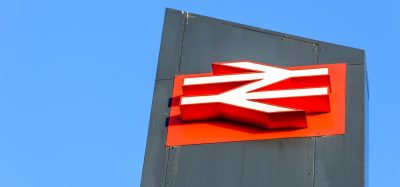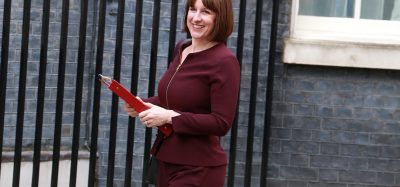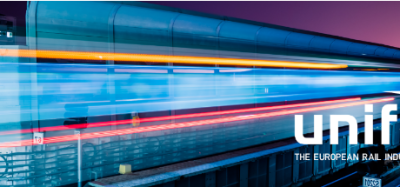UK rail industry responds to Autumn Budget 2021 and Spending Review
Posted: 27 October 2021 | Global Railway Review | No comments yet
UK rail industry experts have reacted to the Chancellor’s Autumn Budget 2021 and Spending Review which includes £46 billion investment for railways.
On 27 October 2021, Rishi Sunak MP, the UK’s Chancellor of the Exchequer, announced the UK government‘s Autumn Budget 2021 and Spending Review which takes place as the country focuses on recovering from a period of unparalleled global economic uncertainty and challenge to move towards a more promising future.
With the economic recovery underway and emergency support winding down, the Budget and Spending Review sets out the government’s plans to build back better over the rest of the Parliament. It does so by investing in strong public services, driving economic growth, leading the transition to net zero, and supporting people and businesses.
The Spending Review 2021 aims to support rail services and invest in reforms to help the country’s railways become more customer-focused and financially sustainable, as set out in the Williams-Shapps Plan for Rail. This settlement provides £5.7 billion over three years to keep essential rail services running as the country emerges from the pandemic and to deliver reforms which enable the railway to become a modern and efficient service. This includes:
- £360 million to modernise ticketing and retail systems, including delivering Pay as You Go ticketing to passengers outside of London
- £205 million to begin the mobilisation of Great British Railways (GBR), bringing new leadership to deliver a better co-ordinated and higher performing railway.
The settlement will also support the delivery of the following priority outcomes:
- Improve connectivity across the UK and grow and level up the economy by enhancing the transport network on time and on budget
- Tackle climate change and improve air quality, including by decarbonising transport
- Build confidence in the transport network as the country recovers from COVID-19 and improve transport users’ experience, ensuring that the network is safe, reliable and inclusive.
Concerning ‘levelling up’, the Chancellor’s announcement includes significant investment in high-quality transport infrastructure that will bring communities across the UK closer together and connect them to opportunity. This includes High Speed Two (HS2), rail enhancements and vital renewals to boost connectivity across the country – focusing on the Midlands and the North, dramatically reducing journey times.
In addition to the Spending Review 2021 settlement, the government says it will continue to progress with the £500 million commitment to restore transport links previously lost in the Beeching cuts of the 1960s. This includes:
- £7 million development funding from 2021-2022 to 2024-2025 to reopen passenger services between Totton and Fawley in Hampshire and £5 million development funding over the Spending Review period to reopen rail stations in Wellington, Somerset and Cullompton, Devon. These investments will help reconnect local communities and support regional growth.
- £650,000 to pay for feasibility work on 13 successful ‘Ideas Fund’ proposals for new rail lines and stations reinstating passenger links from: Stoke to Leek; Darlington to Weardale; Ashton to Stockport; Oswestry to Gobowen; Beverley to York; Middlewich and Gadbrook Park; Buckley Wells to Rawtenstall; Stocksbridge to Sheffield Victoria; Tavistock to Plymouth; Gaerwen to Amlwch; the Askern Branch line; and to re-open Corsham station and Stonehouse Bristol Road station.
Industry responses
Responding to the announcements, Darren Caplan, Chief Executive of the Railway Industry Association (RIA), said: “Whilst it is positive to see confirmation of what looks like an additional £1.5 billion of funding for regional transport projects, including in rail, this Budget appears to be a missed opportunity to unleash the potential of the railways in helping the country to build back better.”
Darren continuted: “There was no indication in the statement of whether long-term day-to-day funding of the railway network will be maintained at least at current levels in the years ahead. We still don’t know what is in the Integrated Rail Plan for the Midlands & the North, we still have uncertainty over major projects, such as HS2 Eastern Leg, Northern Powerhouse Rail and Midlands Rail Hub, and we still await an update of the Rail Network Enhancements Pipeline, now more than two years since it was last published.
“With COP26 just around the corner, too, this would have been a good time to set out the government’s plans to reach a net zero railway, including a rolling programme of electrification and fleet orders of hydrogen and battery trains. These plans would have not just shown UK leadership in decarbonisation on a global stage, but would also significantly boost green jobs and investment, as the UK moves to a cleaner, post-COVID-19 economy.
“There could also have been some clarification on areas like digital signalling, with 60 per cent of traditional signalling needing replacing in the next 15 years. Our rail exporters need to know whether Tradeshow Access Programme budgets will be reinstated or replaced, so that they can play their part in helping the country deliver on Global Britain ambitions.”
Darren concluded: “It is clear that UK rail can play a leading role in the UK’s economic recovery, but to do this the railway industry really does need greater sight of, and input into, the government’s investment plans. Visibility of these plans is vital to supporting effective, reliable and clean world-class railway infrastructure and rolling stock in the coming years, boosting the UK economy and its connectivity not just now, at this critical time, but also for the years ahead as we move on from the pandemic.”
Andy Bagnall, Director General at the Rail Delivery Group (RDG), representing train operators, said: “Investment in rail is continuing to improve services across Britain and new funding announced today will bring the benefits of pay as you go travel to more people outside of London. But wholesale reform of fares regulation is needed to unlock the full benefits across the country.”
Andy continued: “Funding to establish Great British Railways (GBR) will support the delivery of major reform announced earlier [in 2021] in the ‘Plan for Rail’. However the details will be crucial and rail companies want to work with government to make these changes a success.”
“While investment is improving services now, we still operate one of the most congested railways in the world,” Andy explained. “The long awaited Integrated Rail Plan is needed as soon as possible to provide certainty about how upgrades to create more capacity for long distance, regional and local services will power up the government’s levelling up agenda.”
Andy continued: “Today’s Budget also confirms the significant financial challenges the industry faces after the pandemic as we work hard to encourage more people to take the train, with billions of taxpayer funding set aside to run services into 2025. We welcome the continued support but know we must not take more public funding than we need and the rail industry must change today to meet the changing needs of our passengers and lay the foundations for growth tomorrow.”
Reacting to the specific announcement of a cut in Air Passenger Duty for domestic journeys, a week before the start of COP26, Andy said: “Investment to improve connectivity between the nations of the UK is welcome and flying has its place. But if the government is serious about the environment, it makes little sense to cut air passenger duty on routes where a journey in Britain can already be made by train in under five hours. Our analysis shows this will lead to an extra 1,000 flights a year as 222,000 passengers shift from rail to air. This is disappointing and comes at a time when the industry is working hard to encourage people back to rail travel and build a financially sustainable future.”
Andy concluded: “Taken together with a fuel duty freeze for the twelfth consecutive year, it is now more important than ever for the government to encourage more people to choose low carbon forms of transport like trains. We want to work with the government to accelerate our proposals to make fares simpler and better value.”
Related topics
Related organisations
Department for Transport (DfT), HS2 Ltd (High Speed Two), Northern Powerhouse Rail (NPR), Rail Delivery Group (RDG), Railway Industry Association (RIA)








